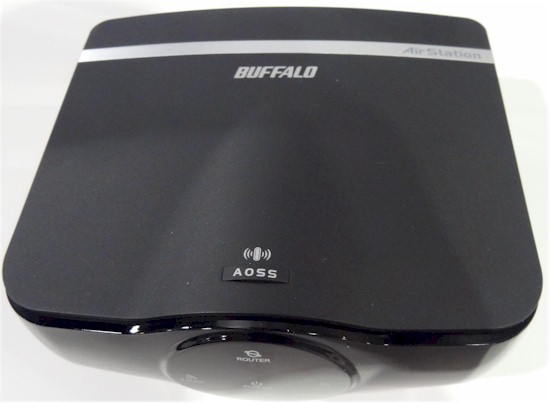Buffalo is publicly demonstrating 802.11ac hardware at the show.
Even though the company announced its AirStation WZR-1750H wireless router, it isn’t demonstrating a working prototype. Instead, the carefully-worded press release said Buffalo "will demonstrate 802.11ac technology on the show floor… using hardware based on [emphasis mine] the future AirStation WZR-1750H wireless router".
The "future" router will support a maximum 1300 Mbps link rate with its 5 GHz only 802.11ac radio and also have a 2.4 GHz three-stream N radio supporting link rates up to 450 Mbps.

Buffalo AirStation WZR-1750H 802.11ac wireless router – top view
So, of course, Buffalo did the math and staked the first claim of "total aggregate wireless throughput of 1750 Mbps", which "creates a sanctuary of wireless connectivity". Yeesh! Of course, the WZR-1750H will have Gigabit Ethernet ports, one WAN and four switched LAN.
So that you have something to actually connect to the router, Buffalo also announced the WLI-TX4-1300H. It’s an 802.11ac media bridge with four switched Gigabit Ethernet ports and 1300 Mbps maximum link rate. Nomention of a 2.4 GHz radio, though.
Both the router and bridge will ship in the "second half" of this year and covered by three-year limited warranties. Pricing will be set later.
Buffalo also announced that its Pogoplug-powered CloudStor products (known as "CloudStation" in Europe and Asia) are now available worldwide. And since Pogoplug rolled out its Cloud service with 5 GB of free storage, Buffalo’s CloudStors now have that, too.
